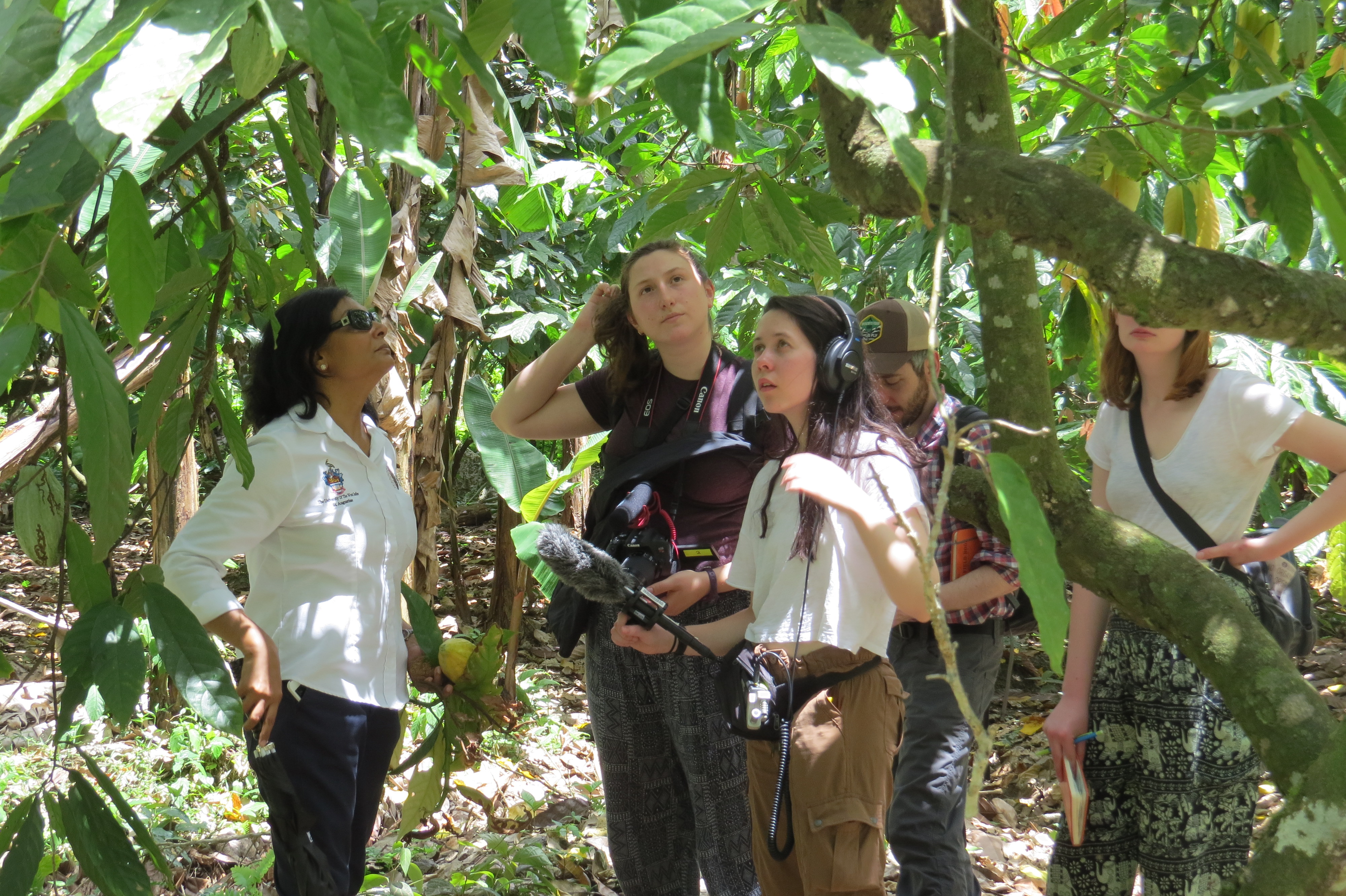By Joanne Mikula, Staff Writer
Haverford students and professors took learning beyond the classroom this spring break when they travelled to Trinidad and Tobago to study the intersections between biological, social, and cultural history. The trip to this dual-island Caribbean nation was funded by Haverford’s Center for Peace and Global Citizenship (CPGC), which aims to encourage “social responsibility, civic engagement, and global peace work.”
Most of the students on the trip are in one of Haverford Professor Jonathon Wilson’s Biology/Environmental Studies courses. According to Wilson, these courses look at the intersections between plants and humans, with a particular emphasis on “how plants and humans co-domesticate one another.”
Two of the students on the trip, Hayle Meyerhoff, HC’ 20 and Katie Rodgers, HC ’18, were from HCAH Visual Media Scholar and Visiting Assistant Professor Vicky Funari’s visual studies class “The Documentary Body.” Meyerhoff and Rodgers filmed the trip, and will make a documentary chronicling their experiences.
Professor Wilson and Professor Funari co-led the trip with Stephanie Zuckerman of the CPGC. Zuckerman is familiar with Trinidad and Tobago both because her father is from the country, and because she completed her masters thesis on the ways that migrating to the U.S. has impacted the racial and ethnic identities of Trinidadian immigrants in Philadelphia. With her copious knowledge of the country, Zuckerman was able to act as a “cultural liaison”– introducing the students to locals and providing them with historical and cultural context.
Professor Wilson and Ms. Zuckerman designed the trip to simultaneously take advantage of Zuckerman’s cultural knowledge and teach Wilson’s students about the islands through the lens of economic botany. The group travelled to a small community called Brasso Seco in the rainforest of Trinidad, where residents use indigenous processes to make chocolate. At Brasso Seco, students were able to see the entirety of the cocoa-making process, from the growing to the processing stage. They also travelled to swamps and rainforests on both islands and even visited the Cocoa Research Facility at the University of the West Indies, where they saw a repository dedicated to growing and preserving rare strains of cacao.
“I learned a lot about how colonial history has formed places down to what plants are available in a place,” said Rebecca Fisher, HC’18, a student in Professor Wilson’s “Plants and People” course. “For example– understanding why there are so many mangos in Trinidad means understanding the history of indentured servitude of the East Indians that the British brought over.”
The trip is also notable for the way it brought together students of all disciplines. Said Fisher, “As an Italian major, strongly outside of the sciences, I was exposed to a huge amount over the course of a week. The group was truly amazing and I learned from every person on the trip.”
When asked in an e-mail what he hoped students would take away from the trip, Wilson said, “Among other things, I hope the students developed a greater appreciation of how plants in the tropics (including spices and food plants, such as cacao and banana) grow and are integral to agricultural and social systems around the world.”
Want to see more photos from this trip? View this photo gallery: https://bicollegenews.com/2018/04/06/fords-travel-to-trinidad-tobago/
